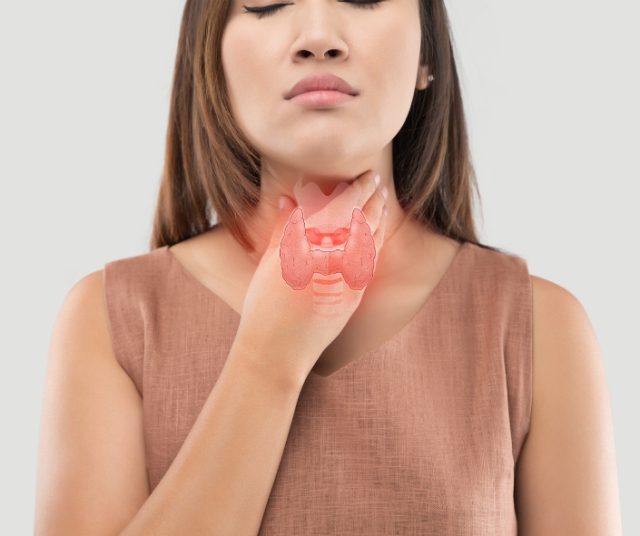Hypothyroidism is a chronic medical condition that affects a significant number of people around the world. Although it is more common in women and older people, it can occur in any age group and gender. In this article, we will explore in more detail all aspects related to hypothyroidism, including additional information on its causes, symptoms, diagnosis, treatment, potential complications, and how it affects the quality of life of those who suffer from it.
More about the Causes of Hypothyroidism.
Aside from the common causes mentioned above, such as Hashimoto's disease and thyroid surgery, there are other, lesser-known factors that can contribute to the development of hypothyroidism. For example, certain medications, such as those used to treat cardiac arrhythmia and depression, can interfere with thyroid hormone production. Additionally, genetic factors and family history can also increase the risk of developing hypothyroidism.
Additional Symptoms and Clinical Manifestations.
While common symptoms of hypothyroidism include fatigue, weight gain, dry skin, and sensitivity to cold, there are other symptoms and clinical manifestations that may not be as obvious but are still significant. For example, hypothyroidism can affect cognitive function and mood, causing problems with concentration, memory impairment, and depression. Additionally, some people may experience more serious symptoms, such as bradycardia (slow heart rate), hypotension (low blood pressure), and myxedema, a severe form of edema caused by the buildup of mucopolysaccharides in the skin and subcutaneous tissues.
Advanced Diagnostics and Laboratory Tests.
The diagnosis of hypothyroidism is typically made through laboratory tests that measure levels of thyroid hormones in the blood, such as thyroid-stimulating hormone (TSH), free T4 (thyroxine), and, in some cases, T3 (triiodothyronine). ). However, in some cases, the diagnosis may be more complex and require additional tests, such as antibody tests to detect Hashimoto's disease or a thyroid scan to evaluate thyroid gland function.
Alternative and Complementary Treatments.
In addition to conventional hormone replacement therapy with levothyroxine, some patients may benefit from alternative or complementary treatments for hypothyroidism. For example, therapy with natural thyroid hormone derived from animal glands, such as porcine thyroid, may be an option for those who do not respond well to synthetic levothyroxine. Additionally, some people may find relief from hypothyroidism symptoms through dietary changes, nutritional supplements, and complementary therapies such as acupuncture and herbal medicine.
Potential Complications and Management of the Disease.
Untreated or poorly controlled hypothyroidism can lead to a number of serious complications, ranging from heart and neurological diseases to fertility problems and pregnancy complications. Therefore, proper management of the disease is essential, including regular monitoring of thyroid hormone levels and adjustments in medication dosage as necessary. Additionally, patients with hypothyroidism should be aware of their condition and educated on how to recognize signs of potential complications to seek medical attention in a timely manner.
Quality of Life and Psychosocial Support.
Hypothyroidism can have a significant impact on the quality of life of those who suffer from it, not only due to the physical symptoms, but also the emotional and psychosocial challenges associated with the disease. It is important that patients receive comprehensive support that addresses both the medical and emotional aspects of their condition. This may include education about the disease, nutritional support, stress management, supportive therapy, and participation in support groups for patients with hypothyroidism, where they can share experiences and advice with others in similar situations.
Advances in Research and Treatment.
As research and scientific knowledge about hypothyroidism advances, new treatment options and management approaches are being developed that have the potential to significantly improve patients' quality of life. From genetic and biological therapies to personalized interventions based on precision medicine, the future of hypothyroidism treatment looks promising. However, more research is needed to fully understand the underlying mechanisms of the disease and develop more effective and safer therapeutic approaches.
Hypothyroidism is a complex, multifaceted disease that affects millions of people around the world. With proper diagnosis and treatment, most people with hypothyroidism can lead normal, healthy lives. It is important to see a doctor if you experience symptoms of hypothyroidism to receive a proper diagnosis and effective treatment.






